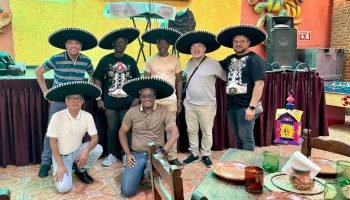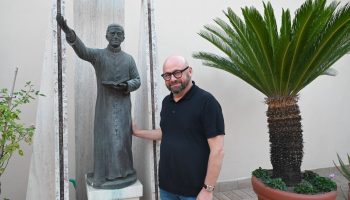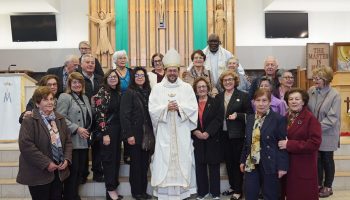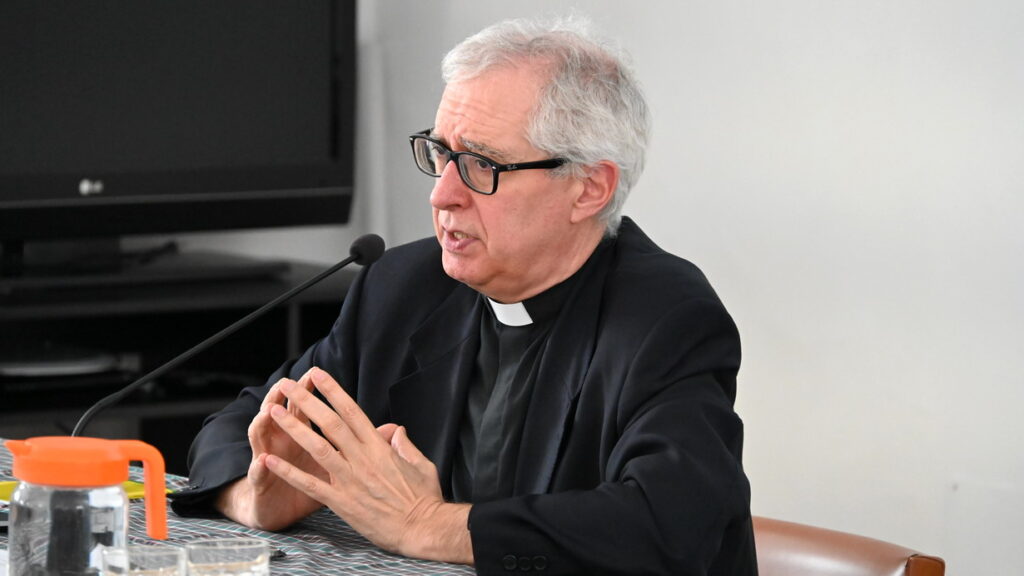
“Consecrated persons can and must start again from Christ because he himself first came to meet them and accompanies them on the journey (cf. Lk 24:13-22). Their life is the proclamation of the primacy of grace [cf. NMI 31]; without Christ they can do nothing [cf. Jn 15:5]; instead they can do everything in him who gives strength”.
By Arlei Pivetta *
With this motivation, taken from the document “Starting Again from Christ: A Renewed Commitment to Consecrated Life” in the Third Millennium (2002), the Claretian Father, Xavier Larrañaga Oyarzabal, CMF, consultant of the Congregation for Institutes of Consecrated Life and Societies of Apostolic Life (CIVCSVA), led a study on May 13 during the ongoing formation course for a group of Jubilee Consolata missionaries gathered in Rome.
For the professor at the Institute of Theology of Consecrated Life Claretianum in Rome, “the first step to follow Christ is to see him as the center of our life.” This helps us “to be present in people’s lives and to know how to listen to them without judging. Knowing how to listen is a gift. Christ taught his apostles to be present, but also, in moments of tiredness, to withdraw to recharge, to be alone, to be able to reflect.”
Father Xavier also emphasized that today “religious life has a role and a voice in society, but it is necessary to start from Christ to be a sign of God’s grace in the world. Christ was, is and will always be new. Religious life embraces the real world, always renewing itself to continue to be prophetic, in search of Jesus, but not a Jesus outside of history, but incarnate,” he observed.
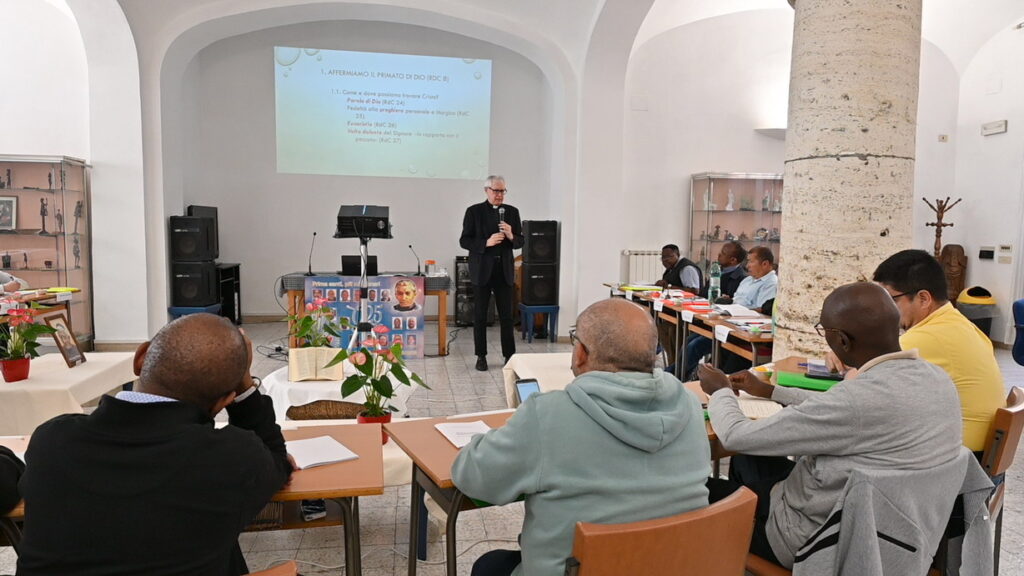
To be a sign of universal brotherhood
Reflecting on the Christian vocation, the professor recalled that “being baptized is consecrating oneself to a universal vocation, which has no boundaries. And the call to religious life is a sign of universal peace”. According to Father Xavier, “the sign must be visible, because invisibility is not good”. As an example, he cited a signboard placed inside a room, which may work well, but will not have the desired effect. We must be “signs” that show people the way to reach Jesus. Remembering that Jesus is a mystery that reveals itself throughout history.
Read also: Discernment on the present of Consecrated Life
Loved, Called and Sent on Mission in the World
The Word of God: soul and guide of consecrated life
Consecrated Life: Current Affairs and Perspectives
One of the challenges of Consecrated Life is feeling safe, which on the one hand is a good thing, but on the other ends up leading to complacency, thinking that there is no need to renew oneself.
Father Xavier emphasized that “religious life should be the poetry of the Church.” It should bring joy, because it is in tune with the Spirit of God that animates, strengthens and illuminates. For this reason it is not a stagnant life, but a dynamic one.
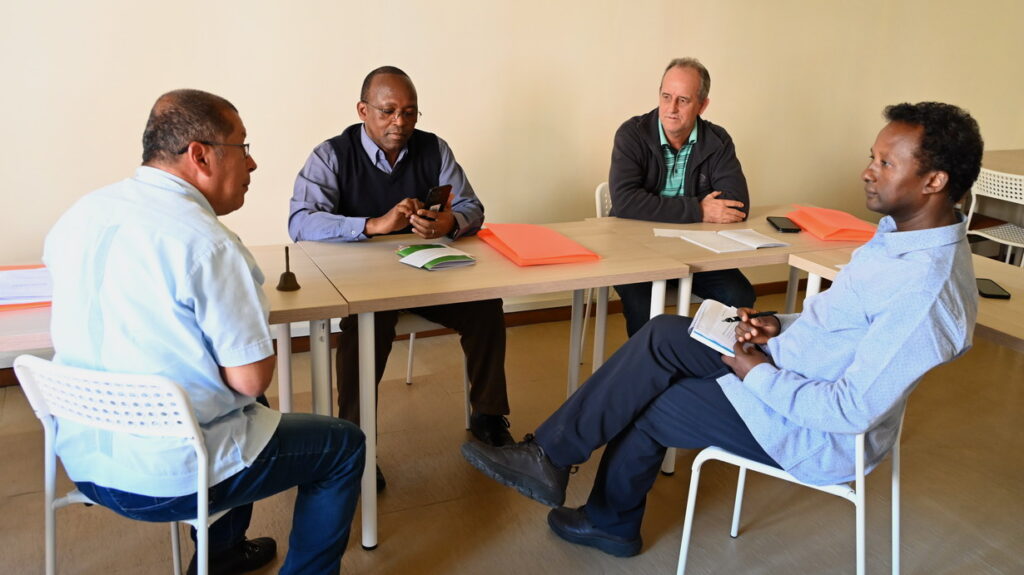
Another important aspect is the “coherence between what we say and what we live. It is in coherence that we attract others”.
According to the speaker, the document “Starting Again from Christ” takes up the teaching of the Apostolic Exhortation “Vita Consecrata” (1996): “The Church entrusts to communities of consecrated life the particular task of spreading the spirituality of communion, first of all in their internal life and then in the ecclesial community, and even beyond its boundaries, by opening or continuing a dialogue in charity, especially where today’s world is torn apart by ethnic hatred or senseless violence.” (VC 51).
Father Xavier Larrañaga insisted with the group of Jubilee missionaries telling them that “Consecrated Life is called to meet, through the missionary path, with modernity and post-modernity. It has much to give: its inner strength of transcendence and religiosity; the strength of communion and sociality; its impulse of creation and culture, of service and mission”.
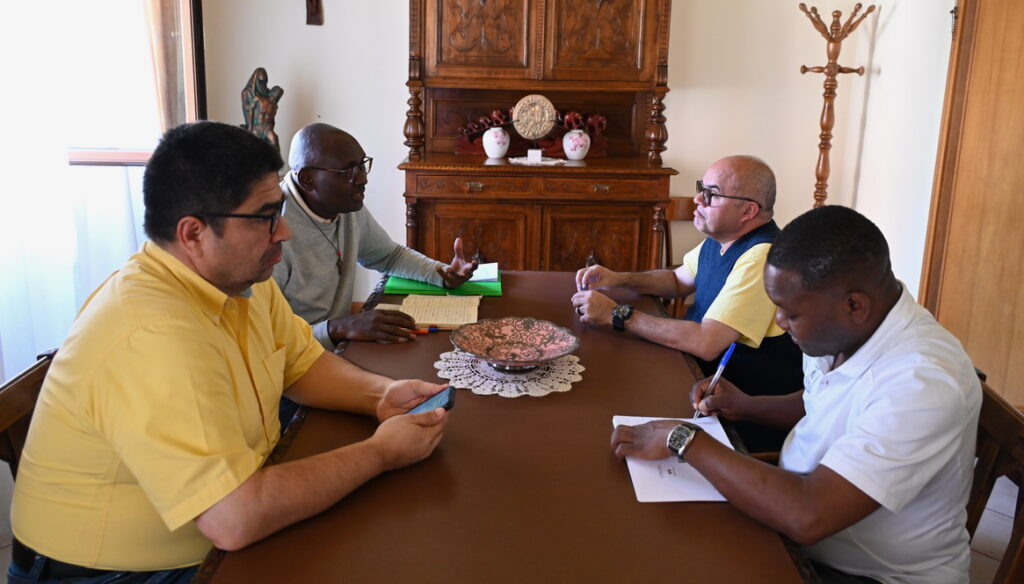
Finally, he recalled that Pope Francis suggested a different way of being present in the world, with new “dispositions that help to better welcome the message: closeness, openness to dialogue, patience, a cordial welcome that does not condemn” (Evangelii gaudium 165). It is a matter of addressing “the deepest questions of the heart” (n. 265) and therefore “one must listen a lot” and “share the life of the people and willingly pay attention to them” (n. 158).
As expected by the course methodology, the participants motivated by the speaker’s reflections, worked in groups to share their experiences and express their questions.
* Father Arlei Pivetta, IMC, missionary in Boa Vista, Roraima.

